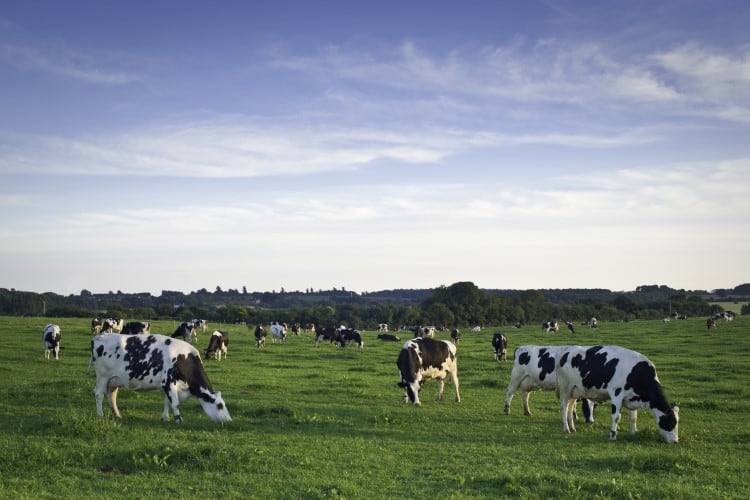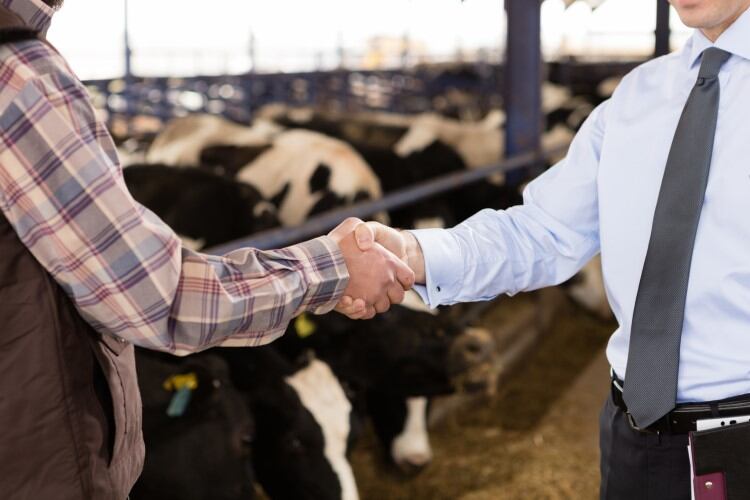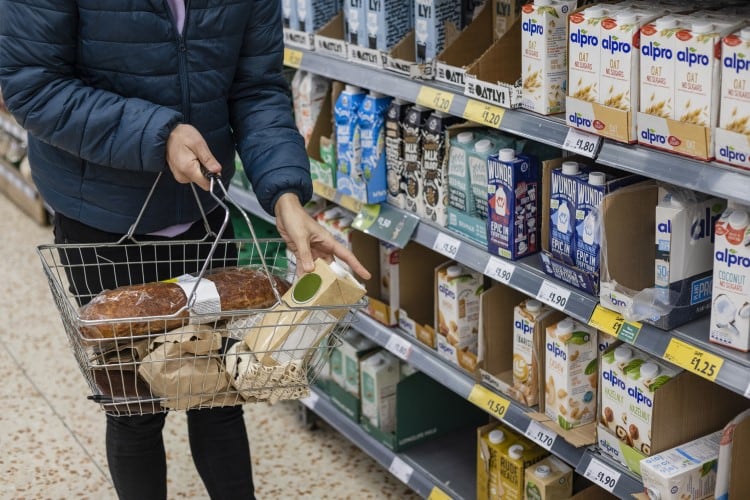Addressing questions from Green MP Caroline Lucas during an Environmental Audit Committee hearing, Spencer stated that the UK should focus on boosting productivity and farming efficiency in order to ‘produce more from less land’ whilst also incentivizing eco-friendly actions such as carbon sequestration. “We are becoming more efficient in the way that we produce food,” the minister said. “I do think we need to focus on our productivity and ensure that we are producing food in the most efficient way that we can but do so in a way which doesn’t damage the environment. And I think those two things go hand in hand.”
Asked if he thought that livestock farming – which requires 85% of agricultural land in England for pasture or to grow animal feed crops – should be reduced in order for the UK to reclaim some of this land back, Spencer said ‘we need to be careful not to fall down that rabbit hole, because what we don’t want to do is displace that meat production to other parts of the world’. “To pay a Hertfordshire farmer to plant trees to then import meat from Brazil would be environmental sabotage, wouldn’t it,” he said.
Asked if experts, such as Henry Dimbleby and Baroness Brown, were ‘wrong’ to suggest that a shift towards plant-based diets and a reduction in farmland were needed, Spencer said: “I don't buy that. I don’t want to dictate what people can and can’t eat – that needs to be their free choice.
“But what I think we can do is improve the efficiency of that meat production. Make sure that the cattle that we are breeding emit less methane, that the feed systems by which we are feeding those animals emit less methane and that their feed conversion rate is more efficient. I think we can do that by genetics,…by management techniques, and…through new products which are coming to the market. We are looking at methane-suppressing feed additives and there are quite a few products which are quite close to the market.”
He also suggested that some areas of the UK, such as the uplands, had been extensively farmed for decades and that grazing land was ‘a huge benefit to our tourism economy, to our mental health’. “The countryside is not there just to produce food, it’s also there as a source of fresh air and regeneration to us as human beings,” he added.
“I understand what you are saying about land that we wouldn’t be able to use for much else in any case,” Lucas said. “But in plenty of other areas in the country, we do need that land back. And therefore, I am interested in why you wouldn’t even consider the government taking some role in advocating, promoting, incentivizing a shift to a plant-based diet.
“Your refusal to move into that space against the advice of frankly all of the experts just seems to be perverse.”
‘Local is always better’
Spencer said 'it oversimplifies it to say that moving in that direction necessarily improves the environment globally'. “We ship an awful lot of asparagus from Peru and avocados from California. That can’t be good for the environment if there was an alternative plant here that we could consume. So local is always better than imported, in my opinion. The message I am trying to deliver to you is that we can achieve all the things we are trying to achieve without going down that prescriptive route.”
Pressed on why the government had not been more receptive towards the Dimbleby report’s findings, the minister said Defra had taken ‘quite a lot’ onboard, but added he didn’t think it was ‘a black and white choice’. “I think we can do both. We can continue to produce meat on the uplands and do that in the extensive way which delivers this beautiful landscape which we all enjoy. And we can also improve the efficiency with the way in which we are producing that food so that the environmental impact is shrunk.
“I am very much for education and informing consumers. I think that is the right way of changing any behaviour. But I don’t wholly accept the concept that meat is bad and plant is good.” - Mark Spencer MP
During the hearing, Spencer was also asked about his opinion on alternative protein production. “I do not relish the thought of eating a cricket covered in chocolate,” he said, adding that he sees potential for insect protein to be used as feed. “It’s an interesting debate to be had about insect protein for poultry, for pig production, and whether that stacks up in terms of the environmental footprint – if it’s better to use UK-produced insect protein than to buy soy from South America.”
Spencer also dismissed lab-grown meat as a viable option for consumers due to the high energy requirements for its production. “The energy which is required to do that is huge in this moment in time and as a consumer, I am not that enthused about burger grown in a lab.”
In Britain, cattle grazing in the countryside is more likely to be beef cattle than dairy. According to the Royal Society for the Prevention of Cruelty to Animals (RSPCA), most dairy systems in the UK involve putting cows out to pasture only during the grazing period, e.g. from spring to early fall. Around 15-20% of dairy cows are kept indoors year-round.
But studies, such as this Kiel University research, have shown that dairy cows on pasture can produce high milk yields while emitting less methane. The RSPCA recommends cows to have access to pasture, which should ideally be ‘a free choice’ for the cow available both day and night, with supplementary feed provided to meet the animal’s nutritional requirements.
In 2017, Asda became the first major supermarket to sell accredited free-range milk in the UK, and Waitrose moved to free-range certification for its own-brand fresh milk in 2022. While there is no universally-agreed standard of ‘free range dairy’, the RSPCA says this should be from cows that have been grazed between 100 and 180 days.



